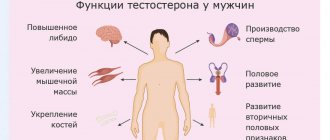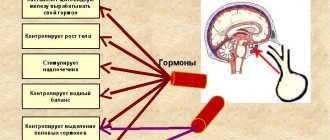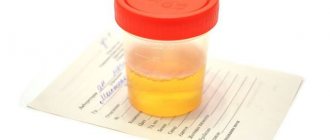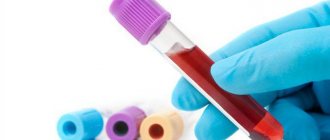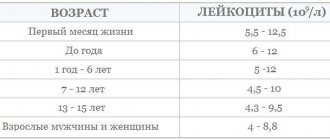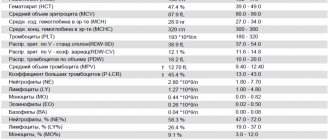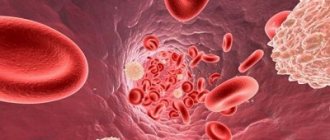The mobile Internet audience is growing rapidly
66 million Russian users use it along with desktop, and 20 million already access the Internet only from mobile devices - this is 15% more than a year ago.
Pages on smartphones may load slowly
There are several reasons: an unstable network connection, low Internet speed, or the site is not adapted for mobile devices. If you have to wait too long, users will move to other sites.
We offer users Turbo technology
It significantly speeds up the loading of text, images and videos on smartphones and helps save time and megabytes of mobile Internet.
Monetization
Yandex Advertising Network
RTB blocks can display ads from tens of thousands of Yandex advertisers. It is convenient to manage blocks from the partner interface: among them is the popular and profitable Motion.
Direct advertising sales
Manage direct advertiser campaigns through ADFOX or other services.
Business model combinations
Using ADFOX, you can transfer impressions that were not purchased by direct advertisers to YAN, as well as compare the rates of all monetizers in Dynamic monetization.
What is thyroid peroxidase (TPO)
Thyroid peroxidase is an enzyme involved in the formation of thyroid hormones.
It is responsible for the most important stages of hormonal synthesis - activation of iodine (oxidizes iodide) and the combination of iodinated tyrosines in the process of synthesis of thyroxine (T4) and triiodothyronine (T3). This is a thyroid enzyme of a protein nature, it is also an antigen. With autoimmune inflammation, immune cells mistake the enzyme proteins for foreign ones, and antibodies begin to be produced to it. In this case, the work of the enzyme is disrupted, and therefore the process of formation of thyroid hormones changes. As a result, hormone levels may increase (hyperthyroidism) or decrease (hypothyroidism).
TPO is located on the surface of cells (thyrocytes) and when immunity is impaired, thyroid tissue is damaged, 2 types of autoimmune reactions are triggered at once - with the participation of B-lymphocytes (produce antibodies) and T-lymphocytes (the cellular part of the immune defense). Antibodies to TPO are not the cause of autoimmune diseases, but their indicator, a marker.
Most often (in 75-85% of patients), elevated levels are found in diffuse toxic goiter (Graves disease) and autoimmune Hashimoto's thyroiditis. Slightly less common (65%) is growth with postpartum thyroiditis.
In a quarter of the examined people (15-25.7%) without any other signs of thyroid disease, antibodies were found in significant quantities (this occurs mainly in older women). If antibodies to TPO are elevated in a pregnant woman, they can cross the placental barrier and enter the fetal bloodstream. This can affect the development of the thyroid gland and the health of the unborn child.
Development plan
- Support for multimedia content (illustrations, videos)
- Support for third party ad networks via ADFOX
- Support for third-party analytics counters (Google Analytics, Mail.Ru, Rambler Top 100, Mediascope)
- Speed up loading Turbo pages by 4 times
- Tables, lists, quotes
- Image and photo galleries
- Displaying comments
- Embed codes for content from YouTube, Vimeo, Instagram, Twitter
- “Endless” feed (block “You may be interested in”)
- Site navigation
- Share button
- Additional advertising spaces
- Advanced analytics capabilities
- Ad rendering speed
- API for publishing content
- Call button, chats and feedback forms
- Support for content embed codes from VKontakte and Odnoklassniki
- Design customization in CSS
- Supports GIF animation and video players
- Editor for debugging Turbo pages
- Rating block
- Media content gallery with slider
- Quickly view a larger image by clicking
- Content block and anchor links
- Sidebar – new menu block
- Additional design types for the “You may be interested in” block
- Support for embedded content from Yandex.Maps and Yandex.Music
- Search form - on your website or with sending a request to search engines
- Impressions of new pages in Turbo format when following links from Turbo pages
- Product cards for online stores
- More statistics in Metrica and the ability to use goals
- Video in Turbo
- New page types
- Poll block
- Advertising optimization - new formats
- The ability to place a product on Turbo pages in one click so that the user does not leave the accelerated version of the store
- Custom blocks
- Authorization
- Possibility to leave a comment
- Advanced features of Metrica
- Feedback from webmasters
Expanded appearance customization options
We have started testing the display of elements created by site owners.
For example, Turbo pages can have complex interactive components using JavaScript, such as diagrams of the placement of chess pieces or players on the field. But there should be more tools that allow you to flexibly customize Turbo pages - and we, of course, will continue to add them. Please tell us what kind of customization is required for the Turbo pages of your website - leave your contacts in this form, and a specialist from the development team will contact you to clarify the details.New opportunities for online stores
Online payment and shopping cart will appear in the e-commerce arsenal. Moreover, in the Turbo version of the store you will be able to make purchases directly from the list of products, and after going to the cart, select delivery options. We will add the ability to pre-fill fields (for example, name or contacts) to the order form - if the site visitor is authorized in his Yandex account. It will become more convenient and easier for users to interact with the Turbo version of the store - there will be fewer failures and more conversions.
Advanced analytics in Yandex.Metrica
The Metrics Webvisor tool will help you analyze in detail the behavior of visitors to Turbo pages.
It records the actions of visitors on the site and shows them in video format - this way you can identify problems in navigation, logic and usability, and as a result, increase site conversion. Metrica will also feature new reports to analyze the effectiveness of the Turbo version of online stores.New blocks and widgets on Turbo pages
By the end of the year, Turbo pages will have:
a multi-level menu,- customizable dynamic forms,
- Apester platform embeds for surveys and quizzes,
- cards for grouping content on a page,
- possibility of fixing the site header,
- Scrolling support when viewing an image gallery,
- “Expand” button to view articles on the desktop,
- “breadcrumbs” to facilitate navigation on the site,
- opportunity to comment on articles.
And new widgets - including Market and Zen widgets
- will increase traffic and expand the site’s audience.
New advertising formats and optimization opportunities
- will appear with a parallax effect
, which will be placed under the site content. The content of such an ad unit appears from underneath the content as the user scrolls the page. The advertisement begins to appear smoothly from the bottom of the banner, and when scrolling, it gradually opens, after which it is just as smoothly and neatly hidden under the content.
Fixed horizontal sticky blocks.
for Turbo pages. This is a new tool for A/B testing of advertising designs with automatic selection of the most profitable option for each site visitor, which is currently undergoing closed beta testing. It will allow you to choose the optimal design of contextual advertising for a specific site.
on Turbo pages, we optimize advertising placements and other parameters so that auto placement brings you more income.
Antibodies to TPO
Autoimmune mechanisms associated with the production of autoantibodies often underlie the development of thyroid diseases. Thyroid peroxidase (TPO) is a membrane-bound enzyme that is expressed only in thyrocytes. This enzyme catalyzes the oxidation of iodide on tyrosine residues of thyroglobulin during the synthesis of T3 and T4 and is one of the most important antigens of the thyroid gland. Thyroid peroxidase antibodies (TPO, thyroid peroxidase antibodies, TPOAb) are autoantibodies to this enzyme. Until recently, these antibodies were called antimicrosomal (AMA, antibodies to microsomal thyroid peroxidase), since they bound to the microsomal fraction of thyrocytes. Modern research has proven the role of thyroid peroxidase as the main antigenic component of microsomes. For the diagnosis of autoimmune thyroid diseases, testing the antibody titer to TPO is one of the most sensitive tests. The main factor underlying hypothyroidism and hyperthyroidism is autoimmune thyroid disease, which usually develops in genetically predisposed people. An increased titer of antibodies to thyroid peroxidase and TSH can predict the development of hypothyroidism in the future. Patients with Hashimoto's thyroiditis have the highest levels of anti-TPO antibodies in a blood test. Antibodies to thyroid peroxidase in this disease are detected in most cases (90%), which confirms its autoimmune origin. In Graves' disease, these antibodies are also often detected (60–80%). There is a clear relationship between the presence of antibodies to TPO and the histological picture of thyroiditis. Although, given the good ability of the thyroid gland to regenerate under the influence of thyroid-stimulating hormone, clinical signs of hypothyroidism may appear years after the onset of a chronic disease. Determining the titer of antibodies to TPO makes it possible to differentiate autoimmune diseases from non-autoimmune goiter or hypothyroidism when diagnosing autoimmune thyroid diseases. Testing for antibodies to TPO is usually carried out simultaneously with testing for antibodies to TG (thyroglobulin).
In general, the detection of AT-TPO in blood serum indicates autoimmune aggression against the thyroid gland, and the more the test results deviate from the norm, the higher the likelihood of a pathological process.
To improve your appearance
Support for Turbo pages on a wider class of mobile screens - so that your Turbo pages look equally good not only on mobile, but also on tablets.
Transferring html layout directly to RSS. To make it more convenient for you to work with the appearance of Turbo pages, we will add the ability to transfer your own html layout directly to RSS. It will be possible to transfer ready-made blocks of your website to the Turbo page practically without changes and not waste time re-configuring the appearance.
Settings for basic design elements without CSS. And so that you can save time on developing your own CSS, let's add the following features:
- customize color, font, logo and other elements directly in Webmaster,
- quickly enable light and dark themes on your website.
Conflict of antibodies and hormones.
Conflict of antibodies and hormones
Autoimmune thyroiditis is called the “dormant disease” of the thyroid gland. This disease may not manifest itself for years, day after day eroding the body’s defenses, and then develop into persistent hypothyroidism.
How autoimmune thyroiditis differs from other thyroid diseases and how it is treated, says the head of the Nizhny Novgorod Regional Thyroid Center, Candidate of Medical Sciences Natalya Ivanovna TARASOVA.
— Do people often suffer from autoimmune thyroiditis?
— This is not a very common disease, like, for example, endemic goiter. For example, in the Nizhny Novgorod region, among children and adolescents with thyroid diseases, autoimmune thyroiditis is detected in only 10 percent.
— Is it true that iodine deficiency can lead to autoimmune thyroiditis?
— Autoimmune thyroiditis is a chronic inflammatory disease of the thyroid gland. It was first described by the Japanese doctor Hashimoto, hence another name for the disease - Hashimoto's thyroiditis.
The development of this disease depends on the state of the immune system, heredity and genetic predisposition. Iodine deficiency may be a weak provoking factor, but not the cause of the disease.
The diagnosis of “autoimmune thyroiditis” is made when the level of thyroid hormones decreases (hypothyroidism), the titer of antibodies to thyroid peroxidase (AT-TPO) and thyroglobulin (AT-TG) increases, and diffuse changes in the structure of the thyroid gland.
— What is the main cause of the disease?
— Autoimmune thyroiditis is associated with congenital disorders of the immune system.
In patients with a genetic defect of immune cells, under the influence of unfavorable factors, the functioning of the immune system is disrupted. As a result, antibodies to thyroid peroxidase accumulate in the thyroid gland, causing the death of follicular cells and disrupting the synthesis of hormones.
Autoimmune changes can trigger severe stress, viral infections, sore throats and even caries. After radiation therapy, post-radiation thyroiditis sometimes develops.
By the way, X-ray examination does not have a negative effect on the thyroid gland, as some believe, because the radiation doses there are very small.
— How dangerous is autoimmune thyroiditis for pregnant women?
— If a pregnant woman’s thyroid gland is affected by an autoimmune process, there is a decrease in thyroid hormones, which are necessary for the proper development of the fetus.
In addition, autoimmune thyroiditis can lead to the development of hypothyroidism in the expectant mother and congenital thyroid disorders in the infant.
Pregnant women with autoimmune thyroiditis should be observed by an endocrinologist and receive hormone replacement therapy.
— What is postpartum thyroiditis?
— Postpartum thyroiditis is a type of autoimmune thyroiditis. This disease develops in approximately 5 percent of women giving birth. The reason is hormonal imbalances, weak immune system, toxicosis, difficult childbirth.
A woman usually develops symptoms of hyperthyroidism: trembling, palpitations, weakness.
— How do you recognize autoimmune thyroiditis?
— Autoimmune thyroiditis with euthyroidism does not have clear manifestations.
If the function of the thyroid gland decreases, then all the signs of hypothyroidism are present: hair loss, weight gain, drowsiness, weakness, and menstrual irregularities in women.
In the hypertrophic form of autoimmune thyroiditis, a goiter appears.
— How is the disease treated?
— Oddly enough, autoimmune thyroiditis without dysfunction of the thyroid gland does not require treatment.
But autoimmune changes increase over the years, which is why it is so important to be monitored and regularly examined by a doctor.
If, with autoimmune gyreoiditis, a goiter appears, accompanied by compression syndrome of neighboring organs, then the thyroid gland is subject to surgical treatment.
For minor dysfunctions of the thyroid gland, hormone replacement therapy (L-thyroxine, eutirox) is prescribed for life, with mandatory dose adjustment.
— Is it possible to somehow slow down autoimmune processes with diet and exercise?
— A healthy lifestyle is always beneficial. Nicotine has a very negative effect on the thyroid gland.
The most important thing is that you need to visit an endocrinologist at least once a year and follow his recommendations.
Ekaterina QUEEN.
To engage the audience
Recommendation widget - a block with personalized content for your audience can be added to the Turbo page. This widget is already available to partners of the Advertising Network - it helps to increase the number of transitions to the site and the depth of views.
Improved automatic recommendation feed. The feed has proven to be an excellent tool for increasing user engagement, and we will continue to improve its effectiveness.
Working with comments - the ability to monitor the list of articles on which the latest comments appeared, as well as turn comments on and off separately for specific articles.
Antibodies to thyroid peroxidase are specific immunoglobulins directed against the enzyme contained in the cells of the thyroid gland and responsible for the formation of the active form of iodine for the synthesis of thyroid hormones. They are a specific marker of autoimmune thyroid diseases.
Synonyms Russian
Antibodies to thyroid peroxidase, microsomal antibodies, antibodies to microsomal antigen, ATTPO, ATPO.
English synonyms
Anti-thyroid Peroxidase Autoantibodies, Antimicrosomal Antibodies, Antithyroid Microsomal Antibodies, Thyroid Peroxidase Autoantibodies, TPO Antibodies, Thyroid Peroxidase Test, Thyroid microsomal antibody, Thyroperoxidase antibody, TPOAb, Anti-TPO.
Research method
Chemiluminescent immunoassay.
Determination range: 5.00 - 600.00 IU/ml.
Units
IU/ml (international unit of milliliter).
What biomaterial can be used for research?
Venous blood.
How to properly prepare for research?
Do not smoke for 30 minutes before the test.
General information about the study
This test is designed to determine specific antibodies to thyroid tissue in the blood serum - anti-TPO. They are formed when the human immune system mistakenly recognizes thyroid tissue as a foreign biological substance, which can lead to thyroiditis, damage to the thyroid tissue and various disorders of its function.
The thyroid gland synthesizes a number of vital hormones: thyroxine (T4) and triiodothyronine (T3), which are of great importance in the regulation of metabolism. In turn, the functioning of the thyroid gland is regulated by the pituitary thyroid-stimulating hormone (TSH), which ensures adequate production of thyroid hormones depending on the needs of the body. The damaging effect of antibodies on various biochemical structures can lead to disruption of the normal production of thyroid hormones and negatively affect the regulation of its function, which ultimately causes chronic pathologies associated with hypo- or hyperthyroidism. Hypothyroidism manifests itself in the form of symptoms such as weight gain, goiter, dry skin, hair loss, constipation, and increased sensitivity to cold. Hyperthyroidism is accompanied by sweating, rapid heartbeat, anxiety, tremors in the limbs, weakness, sleep disturbances, weight loss, and exophthalmos.
The thyroid enzyme thyroid peroxidase plays a key role in the formation of thyroid hormones. Thyroid peroxidase is involved in the formation of the active form of iodine, without which the biochemical synthesis of thyroid hormones T4 and T3 is impossible. The appearance of antibodies to this enzyme in the blood disrupts its normal function, resulting in a decrease in the production of the corresponding hormones.
Quantitative serum analysis for antibodies to thyroid peroxidase is the most sensitive method for diagnosing autoimmune thyroid diseases. Deviation from the norm of its results is an early sign of Hashimoto’s thyroiditis and diffuse toxic goiter (Graves’ disease). Modern highly sensitive methods for detecting antibodies to thyroid peroxidase make it possible to correctly diagnose 95% of patients with Hashimoto's thyroiditis and 85% of patients with diffuse toxic goiter. During pregnancy, anti-TPO can significantly affect the development of the thyroid gland and the health of the unborn child, since they are able to penetrate the placental barrier from the mother's blood into the fetus. Anti-TPO levels are often elevated in other thyroid diseases, such as idiopathic hypothyroidism, adenoma and cancer, and in all types of autoimmune diseases, including rheumatoid arthritis, systemic lupus erythematosus, insulin-dependent diabetes mellitus, autoimmune adrenal insufficiency and pernicious anemia, which In a number of cases, this indicates the involvement of the thyroid gland in this pathological process. Therapy with certain medications (amiodarone, lithium, interferon) can also cause the appearance of antibodies to thyroid peroxidase and, as a result, hypothyroidism.
What is the research used for?
- First of all, to identify various autoimmune diseases of the thyroid gland: Hashimoto's thyroiditis,
- diffuse toxic goiter,
- postpartum thyroiditis,
- autoimmune thyroiditis,
- hyperthyroidism or hypothyroidism in newborns.
When is the study scheduled?
- For symptoms of disruption of the normal functioning of the thyroid gland.
- When the results of other tests indicate any dysfunction of the thyroid gland.
- When long-term monitoring of the health of a patient with thyroid disease is required, which includes conducting laboratory tests at certain intervals to monitor the effectiveness of treatment.
- If the possibility of prescribing therapy associated with the risk of developing hypothyroidism as a result of the appearance of anti-TPO (lithium drugs, amiodarone, interferon alpha, interleukin-2) is being considered.
- If it is necessary to find out the causes of miscarriage, preeclampsia, premature birth, unsuccessful attempts at artificial insemination - this may be due to the influence of specific antibodies.
- If other test results (T3, T4 and/or TSH) indicate thyroid dysfunction.
- For an autoimmune disease that initially did not affect thyroid function (rheumatoid arthritis, systemic lupus erythematosus, pernicious anemia, systemic autoimmune vasculitis, insulin-dependent diabetes mellitus), if symptoms appear that the thyroid gland is involved in this process.
- If the patient is at high risk for autoimmune thyroiditis (such as pregnant women with a history of this disease in their family).
What do the results mean?
Reference values: 0 - 34 IU/ml.
Reasons for increasing anti-TPO levels
In general, the detection of anti-TPO in blood serum indicates autoimmune aggression against the thyroid gland, and the more the test results deviate from the norm, the higher the likelihood of this type of pathology.
- A slight or moderate increase in thyroid peroxidase levels can be caused by many thyroid diseases and autoimmune disorders: rheumatoid arthritis, systemic lupus erythematosus, insulin-dependent diabetes mellitus, thyroid cancer, systemic autoimmune vasculitis, etc.
- A significant deviation of the results from the norm most often indicates an autoimmune disease of the thyroid gland, for example Hashimoto's thyroiditis, diffuse toxic goiter.
- Positive test results during pregnancy indicate the possibility of hyperthyroidism in the child (during intrauterine development or after birth).
- If the test for antibodies to thyroid peroxidase is used for long-term monitoring of the progress of treatment, and the level of antibodies either remains high throughout the entire observation period, or decreases at the beginning of therapy, and then increases again after a certain period of time, this indicates insufficient effectiveness of the treatment. therapy, as well as that the disease continues or is exacerbating.
- Sometimes the level of anti-TPO is elevated in practically healthy people, more often in women, and this probability increases with age. Most of them are never bothered by thyroid disease, but in any case, the patient’s health condition is monitored for some time.
Reasons for decreased anti-TPO levels
A decrease in the concentration of anti-TPO to low or even more undetectable values indicates that the treatment is successful.
What can influence the result?
- A large amount of fat in the blood serum.
Indications for the analysis of antibodies to thyroid peroxidase
A test for antibodies to the thyroid gland is prescribed as part of a comprehensive examination of patients with:
- signs of hyperthyroidism: increased nervousness, weight loss with good appetite, rapid heart rate, arrhythmia, protruding eyeballs, trembling hands, heat intolerance, shortness of breath with light exertion;
- symptoms of hypothyroidism: swelling of the face, eyelids, lethargy, drowsiness, apathy, hair loss, chilliness, weight gain with decreased appetite;
- spontaneous abortion, preeclampsia, unsuccessful IVF attempts;
- an established diagnosis of autoimmune thyroid disease to monitor the effectiveness and duration of treatment;
- an established diagnosis of other autoimmune diseases (for example, systemic lupus erythematosus, pernicious anemia, systemic autoimmune vasculitis, type 1 diabetes mellitus or rheumatoid arthritis) when signs of thyroid dysfunction appear;
- symptoms of disruption of the normal functioning of the thyroid gland and/or detected changes in test results for T3, T4, thyroid-stimulating hormone of the pituitary gland;
- the need to prescribe drugs that affect the functioning of the thyroid gland (for example, lithium, amiodarone, interferon alpha);
- family predisposition to autoimmune thyroid diseases;
- as a preventive measure in the first trimester of pregnancy to identify the risk of thyroid dysfunction during pregnancy and the development of postpartum thyroiditis.
Autoimmune thyroiditis - symptoms and treatment
Therapy for autoimmune thyroiditis of the thyroid gland is nonspecific. When the phase of thyrotoxicosis develops, the use of symptomatic therapy is sufficient. When hypothyroidism develops, the main option for drug therapy is the administration of thyroid hormones. Now in the pharmacy chain of the Russian Federation it is possible to purchase only Levothyroxine sodium tablets (L-thyroxine and Euthyrox). The use of tableted preparations of thyroid hormones neutralizes the clinical picture of hypothyroidism and, in the hypertrophic form of autoimmune thyroiditis, causes a decrease in the volume of the thyroid gland to acceptable values.
If a patient has manifest hypothyroidism (an increase in the level of thyroid-stimulating hormone and a decrease in the concentration of free T4), it is necessary to use levothyroxine sodium in the treatment at an average dose of 1.6 - 1.8 mcg/kg of the patient’s body weight. An indicator of the correctness of the prescribed treatment will be the confident retention of thyroid-stimulating hormone in the patient’s blood within the reference values.
When a patient is diagnosed with subclinical hypothyroidism (increased TSH concentration in combination with unchanged free T4 concentration), it is necessary:
- After 3–6 months, carry out a second hormonal examination to confirm the presence of changes in thyroid function;
- When an increase in thyroid-stimulating hormone levels is detected in a patient during pregnancy, even with preserved free T4 concentrations, prescribe levothyroxine sodium at the full calculated replacement dose immediately;
- Treatment with levothyroxine sodium is necessary for persistent subclinical hypothyroidism (an increase in the concentration of thyroid-stimulating hormone in the blood above 10 mU/l, and also in situations of at least twice the determination of the concentration of thyroid-stimulating hormone between 5 - 10 mU/l), but if these patients are over 55 years old and have they have cardiovascular pathologies, treatment with sodium levothyroxine is prescribed only if the drug is well tolerated and in the absence of information about decompensation of these diseases while taking thyroxine;
- An indicator of the sufficiency of treatment for subclinical hypothyroidism is the stable maintenance of TSH levels within the reference values in the blood.
If women, before planning pregnancy, have antibodies to thyroid tissue and/or ultrasound signs of autoimmune thyroiditis, it is necessary to determine the hormonal function of the thyroid gland (thyroid-stimulating hormone concentration and free T4 concentration) and be sure to determine the level of hormones in each trimester of pregnancy.[8]
If autoimmune thyroiditis is diagnosed, but changes in the functioning of the thyroid gland are not detected, the use of sodium levothyroxine is not indicated.[9] It is sometimes possible in exceptional situations of an impressive increase in the volume of the thyroid gland, provoked by autoimmune thyroiditis, and the decision is made for each patient individually.[10]
Physiological amounts of potassium iodite (approximately 200 mcg/day) cannot provoke the formation of hypothyroidism and do not have a negative effect on thyroid function in previously developed hypothyroidism caused by autoimmune thyroiditis.
Nutrition for autoimmune thyroiditis
There are no products that affect the course of autoimmune thyroiditis. Gluten or lactose are not related to hypothyroidism due to AIT. Therefore, dietary recommendations for people with autoimmune thyroiditis are the same as for everyone else: a varied, balanced diet with sufficient water intake.
Are there traditional methods of treatment?
Autoimmune thyroiditis is treated only with medications prescribed by an endocrinologist. The lack of adequate therapy can lead to dangerous complications: impaired reproductive function, severe memory loss (even dementia), anemia and coma, which occurs with a severe deficiency of thyroid hormones.
What do the results mean?
The normal level of antibodies to TPO is up to 34 IU/ml. If a significant increase is detected, then this is a sign of autoimmune inflammation of the thyroid gland:
- thyroiditis: postpartum, Hashimoto's, newborns;
- diffuse toxic goiter.
A moderate increase in the level of antibodies to TPO can also occur in other autoimmune diseases of the thyroid gland: subacute thyroiditis, single and multiple thyroid nodules, thyroid cancer. An increase in antibodies during treatment indicates its insufficient effectiveness, while a decrease indicates the success of therapy.

